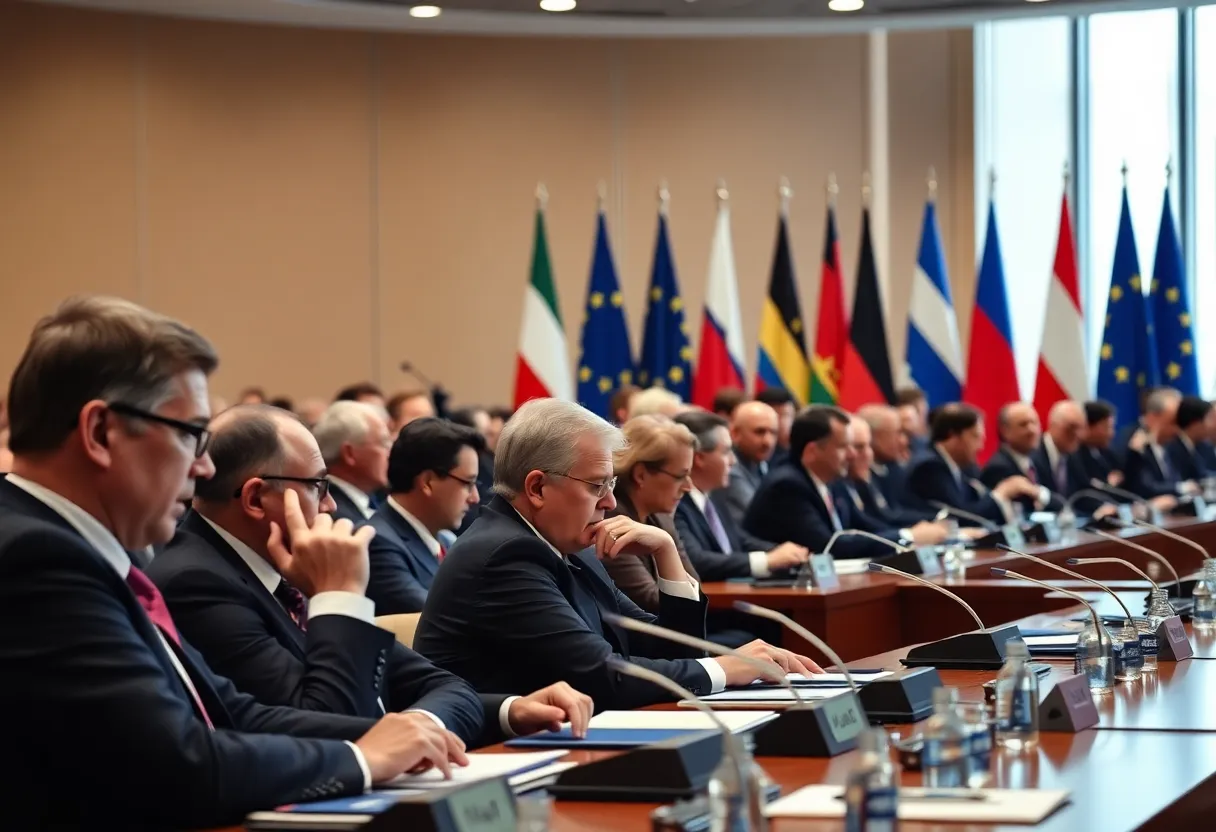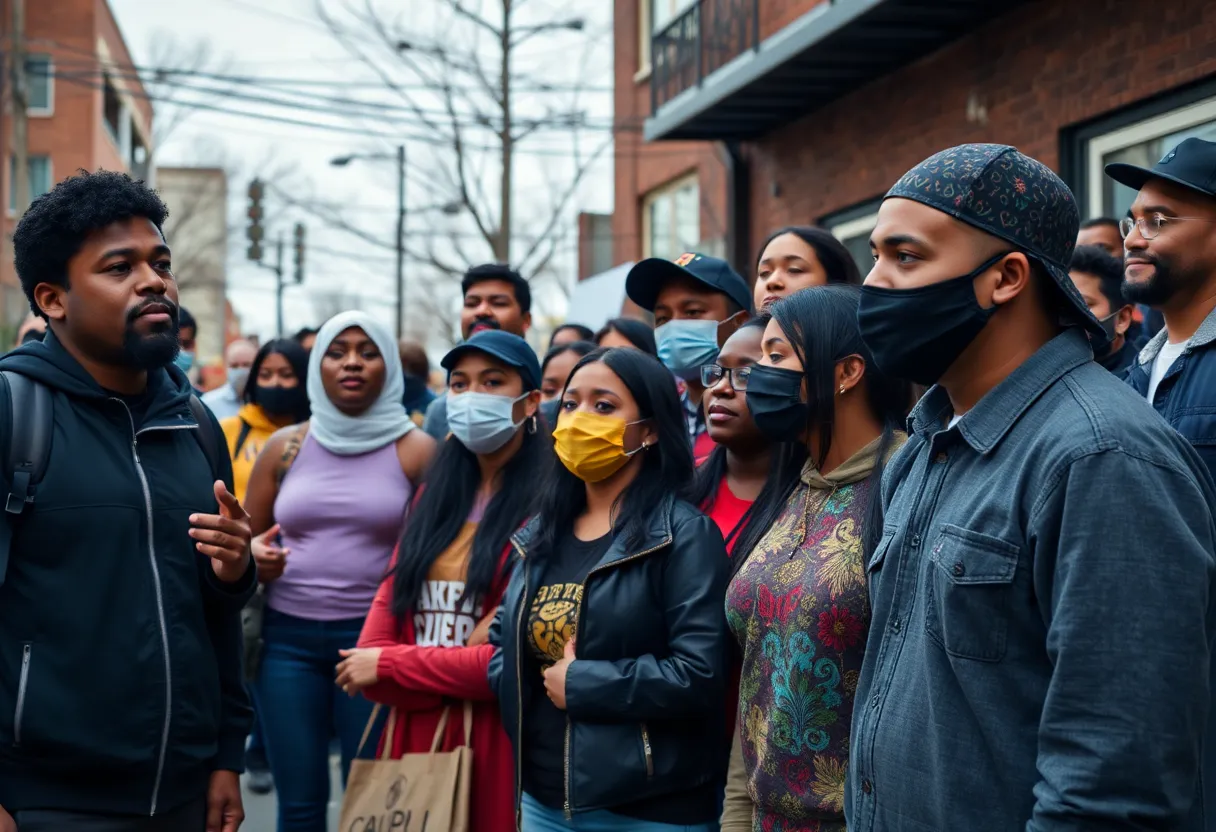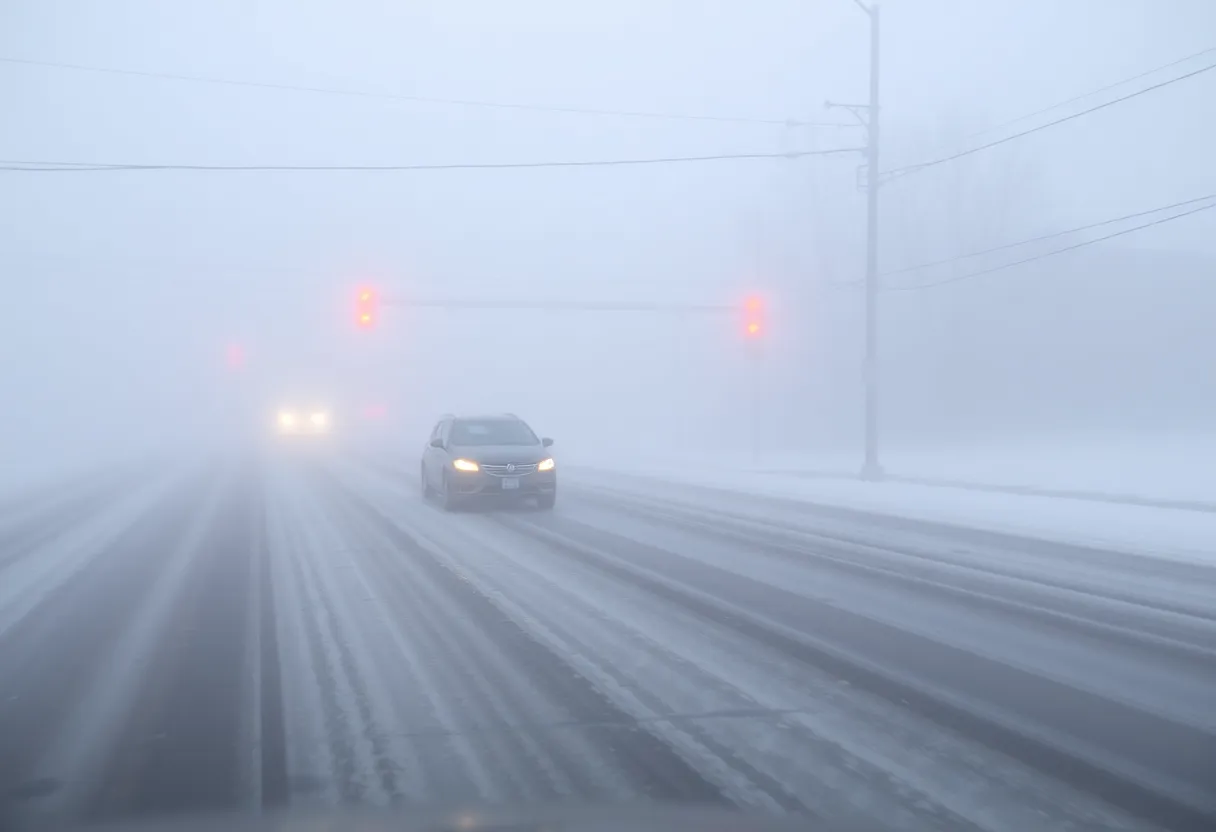News Summary
During the Munich Security Conference on February 14, 2025, Vice President JD Vance raised concerns about Europe’s internal censorship policies, labeling them a greater threat than external forces like Russia. He criticized European leaders for retreating from democratic values and highlighted alarming instances of censorship across the continent. Vance’s speech sparked significant dialogue on the balance of freedom and security in Europe, questioning the implications of current political practices for democracy’s future.
Vice President JD Vance Raises Eyebrows at Munich Security Conference
On February 14, 2025, Vice President JD Vance sparked conversations and raised a few eyebrows at the Munich Security Conference. Rather than focusing solely on the usual topics of international security or the conflict between Russia and Ukraine, Vance took a bold turn and pointed fingers at **_Europe’s own internal censorship policies_**. He described these policies as a *greater threat* to Europe than any external actor, including Russia. That’s quite a claim, don’t you think?
Turning the Spotlight Inward
Vance made it clear that the danger isn’t just coming from outside the continent. Instead, it’s stemming from a retreat from the fundamental democratic values that he believes should bind Europe and the United States together. During his speech, he criticized the comments made by former European Commissioner Thierry Breton, who discussed potential election outcomes concerning the German AfD party. Vance questioned whether European leaders really maintain high standards for democracy if elections are being cancelled or manipulated by unelected courts, as was the case in Romania, where a presidential election was annulled over alleged foreign influence.
Censorship in Europe: A Growing Concern
Vance didn’t hold back when pointing out examples of censorship across Europe. He shared instances like police raids in Germany on those accused of making aggressive remarks online and cases in the U.K. where individuals, like Adam Smith-Connor, faced fines for engaging in silent protest. Then there’s the troubling case in Sweden, which saw a Danish activist jailed for burning a copy of the Quran. These anecdotes seem to represent an alarming trend: a growing intolerance for dissenting opinions in a space that prides itself on free speech.
Lessons from the Past
He urged the audience to reflect on **_historical lessons from the Cold War_** regarding censorship and dissidents, suggesting that these past experiences should serve as a reminder of the importance of safeguarding free expression. Vance emphasized that current censorship tactics in Europe — often camouflaged under terms like “misinformation” — aim to silence alternative viewpoints and lead to heavier restrictions on citizens’ rights.
Populism and Exclusion
Interestingly, Vance also pointed out that the organizers of the Munich Security Conference barred representatives from *populist parties*, both on the left and right, from participating in discussions. He expressed how this exclusion reflects the entrenched interests that mask themselves as protectors of democracy but, in reality, stifle the very discourse that democracy thrives on.
Fear of Citizens: A Concerning Outlook
Vance’s views left many attendees astounded, with some labeling his speech as “utterly frightening.” He posed a challenging question for European leaders: If they are *afraid of their own citizens*, how can the United States step in to assist them? This self-imposed crisis, he argued, is largely created through the political behaviors witnessing a *retreat from accountability and transparency*.
Migration and Democratic Validity
Another significant topic he raised was mass migration. Vance suggested that European voters had not overwhelmingly called for an open immigration policy, indicating a disconnect between political elites and the populace. He stressed the need for leaders to respect the *intelligence of their citizens* and cautioned against relying on censorship and the jailing of opposition to maintain power.
What’s Next for Europe?
As Vance wrapped up his talk, the implications of his critique about democracy and security in Europe hung in the air. With emotions running high and discussions wading into controversial waters, it seems that the challenges facing Europe may not solely come from external forces like Russia, but rather from protecting and nurturing its own democratic principles. It raises the question of how Europe will respond to such stark observations and what changes might be in store for its future.
Deeper Dive: News & Info About This Topic
- Foreign Policy: Vance’s Speech on Censorship and Democracy
- Fox News: Vance on European Censorship
- Reuters: Vance Critiques European Censorship
- Encyclopedia Britannica: Freedom of Speech
- Google Search: European Censorship

Author: STAFF HERE MEMPHIS WRITER
The MEMPHIS STAFF WRITER represents the experienced team at HEREMemphis.com, your go-to source for actionable local news and information in Memphis, Shelby County, and beyond. Specializing in "news you can use," we cover essential topics like product reviews for personal and business needs, local business directories, politics, real estate trends, neighborhood insights, and state news affecting the area—with deep expertise drawn from years of dedicated reporting and strong community input, including local press releases and business updates. We deliver top reporting on high-value events such as Beale Street Music Festival, Elvis Week, and Memphis in May International Festival. Our coverage extends to key organizations like the Greater Memphis Chamber and the Memphis Convention & Visitors Bureau, plus leading businesses in logistics, healthcare, and music that power the local economy such as FedEx, St. Jude Children's Research Hospital, and AutoZone. As part of the broader HERE network, including HEREBristol.com, HEREChattanooga.com, HEREKnoxville.com, and HERENashville.com, we provide comprehensive, credible insights into Tennessee's dynamic landscape.






